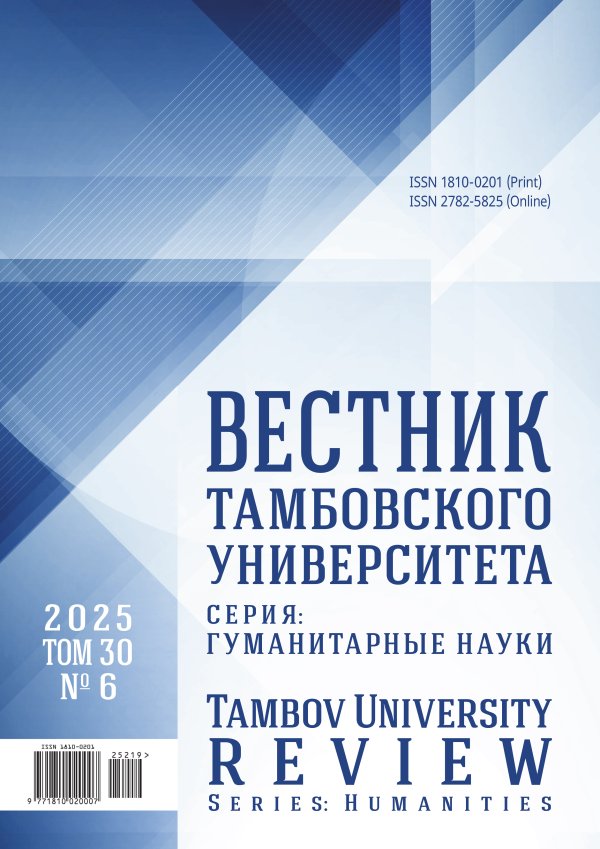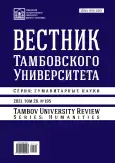Возможности интерактивных технологий в формировании профессиональных компетенций бакалавров по направлению подготовки 44.03.05 «Математика», «Информатика»
- Авторы: Клименко И.С.1
-
Учреждения:
- ГБОУ ВО «Ставропольский государственный педагогический институт»
- Выпуск: Том 26, № 195 (2021)
- Страницы: 21-29
- Раздел: ПЕДАГОГИКА ВЫСШЕЙ ШКОЛЫ
- URL: https://journal-vniispk.ru/1810-0201/article/view/298504
- DOI: https://doi.org/10.20310/1810-0201-2021-26-195-21-29
- ID: 298504
Цитировать
Полный текст
Аннотация
Внедрение интерактивных образовательных технологий в вузовскую практику является актуальной задачей, решение которой необходимо рассматривать как необходимое и достаточное условие повышения качества подготовки в системе педагогического образования Российской Федерации. Интерес к этой проблеме обусловлен зачастую неоправданным использованием современных программно-аппаратных средств в образовательном процессе, следствием которого становится частичная или полная утрата студентами навыков речевой коммуникации, социо-коммуникативного контроля, адекватной самооценки. Целью исследования стало формирование нового подхода к формированию профессиональных компетенций будущих педагогов, в основу которого положены принципы системности, обеспечивающие качественное педагогическое образование. Использованы методы анализа проблем формирования, развития и совершенствования профессиональных компетенций студентов педагогических вузов; систематизации фактических и эмпирических данных по проблеме внедрения инноваций в педагогическую практику. Обобщение опыта применения интерактивных образовательных технологий в системе подготовки специалистов с высшим профессиональным образованием подтверждает целесообразность и необходимость введения инноваций в вузовскую педагогическую практику. Разработанные рекомендации по формированию инструментов совершенствования профессиональных компетенций будущих педагогов могут быть рекомендованы для использования с целью расширения рамок управления образовательным процессом в вузе.
Об авторах
И. С. Клименко
ГБОУ ВО «Ставропольский государственный педагогический институт»
Автор, ответственный за переписку.
Email: iskl@bk.ru
ORCID iD: 0000-0002-8524-6119
доктор технических наук, доцент, профессор кафедры математики, информатики
355029, Российская Федерация, г. Ставрополь, ул. Ленина, 417АСписок литературы
- Бельчиков Я.М., Бирштейн М.М. Деловые игры. Рига: Авотс, 1989. 303 с.
- Бирштейн М.М. Основные направления развития деловых игр. Деловые игры в мире. СПб.: СПбИЭИ, 1992. 159 c.
- Жуков Р.Ф. Пути развития активных методов обучения в университете // Технология акмеологических методов обучения: сб. науч. тр. СПб.: СПбГИЭУ, 2001. 160 с.
- Комаров В.Ф. Управленческие имитационные игры. Новосибирск: Наука, 1989. 272 с.
- Абрамова И.Г. Активные методы обучения в системе высшего образования. М.: Гардарика, 2008. 368 с.
- Панфилова А.П. Игротехнический менеджмент. СПб.: Знание, 2003. 533 с.
- Литвинова Т.Н. Обучающая игра в развитии профессиональных компетенций студентов-международников: на примере имитации «внешняя политика государства» // Вестник МГИМО. 2009. № 6 (9). С. 120-131.
- Кадина И.В. Игровые методы обучения в системе профессиональной подготовки специалистов агроинженерного профиля. Волгоград: Волгоград. гос. аграр. ун-т, 2015. 167 с.
- Кругликов В.Н. Интерактивное обучение в высшей школе // Научно-технические ведомости. 2013. № 4 (184). С. 66-72.
- Кругликов В.Н. Деловые игры и другие методы активизации познавательной деятельности. СПб.: Медный всадник, 2006. 190 с.
- Соловьева Н.А., Макаренко Т.А. Применение деловых игр со студентами педагогических специальностей. URL: http://e-koncept.ru/2015/95211.htm (дата обращения: 01.08.2021).
- Акрамова Л.Ю., Латипова Д.Ш. Интерактивные методы и деловые игры на занятиях английского языка в группах магистров медицинского вуза // Экономика и социум. 2013. № 4 (9). С. 141-143.
- Истомина В.В. Активные методы обучения как компонент подготовки будущих бакалавров профессионального обучения к учебно-профессиональной деятельности // Гуманитарные и экономические науки: проблемы и пути их решения: материалы Междунар. науч.-практ. конф. Челябинск, 2018. С. 29-33.
- Киреев Б.Н. Активные методы обучения и их реализация на занятиях по общетехническим дисциплинам // Слагаемые педагогической практики: материалы 4 Междунар. науч.-практ. конф. Елабуга, 2018. С. 21-26.
- Гаджиева П.Д. Активные методы обучения в процессе изучения социально-гуманитарных дисциплин // Объединенный иллюстрированный каталог материалов международных и общероссийских выставок-презентаций научных, учебно-методических изданий и образовательных технологий: сб. науч. ст. М., 2018. С. 44-45.
- Тарасова И.Д. Современные технологии в образовании. Активные методы обучения // Сфера знаний: структурные преобразования и перспективные направления развития научной мысли: сб. науч. ст. Казань, 2018. С. 222-228.
- Поликарпов И.О. Активные методы обучения как способ повышения качества профессионального образования // Современная наука и образование: новые реалии и научные решения: материалы Междунар. науч.-метод. конф. Белгород, 2017. С. 304-312.
- Клименко И.С. От технологии 2С к технологии 2Д. Настольная книга разработчика деловых игр. Saarbrücken: Palmarium Academic Publishing, 2014. 284 с.
- Генике Е.А. Активные методы обучения: новый подход. М.: Нац. кн. центр, ИФ «Сентябрь», 2015. 176 с.
- Клименко И.С. Управление качеством образования: опыт системного анализа и институционализации. М.: КДУ, Добросвет, 2021. 253 с.
Дополнительные файлы









